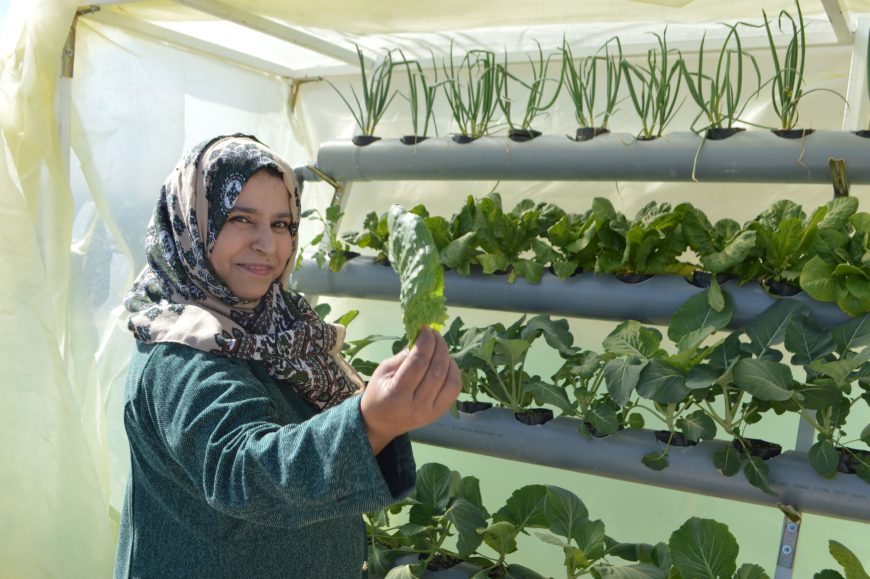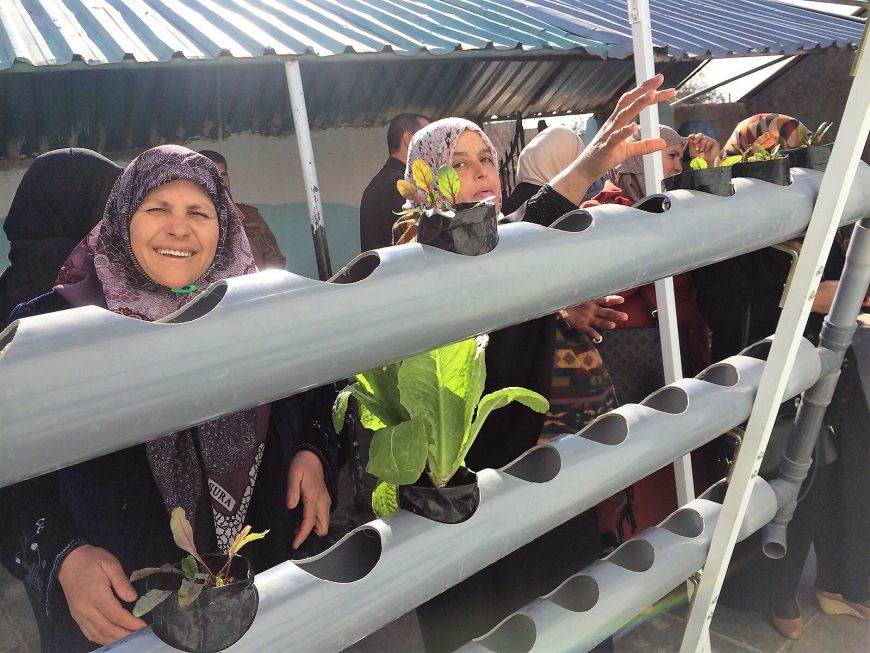
In March 2017, ACTED Jordan, with funding from the World Food Programme (WFP), began an innovative new pilot project in Azraq refugee camp: the installation of hydroponics systems to give refugees enhanced access to climate-smart agriculture trainings and livelihoods opportunities.
The project will empower camp residents with the skills and hydroponic materials to sustainably produce fresh animal fodder to be sold to local farms, providing beneficiaries with new livelihoods opportunities within the camp while simultaneously meeting demand of host communities for fresh fodder.
Hydroponics: the process of growing plants in sand, gravel, or liquid, with added nutrients but without soil.
Opened in April 2014, Azraq camp is home to 54,000 Syrian refugees, most of whom subsist entirely on daily bread distributions and 20 dinar (28 USD) monthly food vouchers from WFP for use at the camp markets. Work opportunities are especially limited for those living in refugee camps, as leaving the camp to access job opportunities requires applying for both a leave permit and a work permit.
87% of camp residents registered for job opportunities in Azraq Camp are still unemployed (Danish Refugee Council, July 2016)
In response, ACTED is implementing an innovative hydroponics pilot project, based off of a similar WFP pilot in Algeria, to provide beneficiaries with sustainable income while benefiting the surrounding communities. Beneficiaries will receive cash incentives while benefiting from on-the-job hydroponics training and basic business-skill development to grow and sell fresh animal fodder. At the same time, ACTED will provide them with market connections with local farmers, giving the beneficiaries sustainable income-generating opportunities and offering farmers a local food source that is much more nutritious than the dry fodder generally imported into Jordan for livestock.

At the same time, the project will serve as a model for expansion both within the camps and in host communities. While the pilot will focus on fodder production in Azraq camp to meet the needs of camp beneficiaries and the surrounding host communities, activities can be easily adapted according to local needs, including through growing fruits and vegetables to strengthen the affordability and availability of local produce, whether in new host communities or shifting camp circumstances. Furthermore, since the closed-circuit hydroponic unit is self-sufficient and minimizes water inputs, it can be replicated in any community regardless of the local agricultural circumstances. Thus, while the hydroponics pilot project aims to provide income-generating opportunities in Azraq Camp, it can serve as an innovative solution for livelihoods and food security issues throughout the country and beyond.
In a desert climate such as Jordan, the emphasis on climate-smart agriculture techniques is growing more and more important, but conventional farmers are still a bit hesitant to change their current techniques. A hydroponics pilot project is perfect for a place like Azraq camp, because it requires no soil, very little water and, at the same time, refugees have access to income-generating activities which they have never had before.